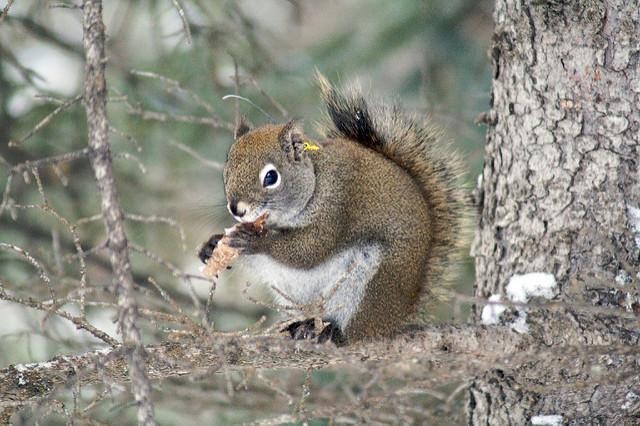Health is seriously threatened by declining air quality, and scientists have shown that other species are also at risk.
According to a London study, grey squirrels' lung damage worsens closer to a city's center.
It was discovered that the rodents in Richmond have much healthier lungs than those in central Westminster.

Linked to Air Pollution
The study, published last week in the journal Environmental Pollution, showed the extent of urban air pollution and hypothesizes that many other species, such as wild animals, birds, domestic cats, and dogs, may be harmed by airborne particles from traffic and other sources, The Guardian reported.
According to researcher Patricia Brekke of the Zoological Society London, "there have been substantial declines in populations of species that had previously adapted very well to city life."
"They have included hedgehogs, sparrows, starlings, bees, butterflies, and beehives. All have seen significant recent population declines."
Squirrel Casualties
Although there hasn't been any concrete evidence to support the theory in wild mammals, air pollution's effects have been suggested as one cause.
The squirrel study sought to close that gap.
The native red squirrel has been displaced by the grey squirrel (Sciurus carolinensis), which was imported to Britain in the late 1800s.
In addition, to being bigger, grey squirrels frequently carry the squirrel pox virus, which seldom affects them but often results in the death of red squirrels.
The grey is now seen as a problem, and culling is done frequently. These animals served as the study subjects for the researchers.
The researchers looked at 106 animals that had been killed in five London boroughs: Camden, Greenwich, Haringey, Richmond upon Thames, and Westminster.
They also looked at two rural locations: Alice Holt in Surrey and Penrhyn Castle in north Wales.
The squirrels were tested for indicators of lung disease, black carbon particles in their lung tissue, and signs of harm to the lymph node tissue known as bronchus-associated lymphoid tissue.
Air Pollution
According to Simon Priestnall of the Royal Veterinary College, London, "we observed that squirrels that had come from the inner city had a lot more black carbon in their lung tissue but less lymphoid tissue in their lungs compared with those who had been collected from outer districts of London."
"In short, the lungs of the squirrels killed in central London's Westminster had far poorer conditions than those killed in the city's lush Richmond neighborhoods."
A city's center is where air pollution is severe rather than its edges.
The city's traffic and construction activities push microscopic particulates into the atmosphere, one of the leading causes of this air pollution.
Diesel exhaust gases, brake linings, and tire dust are some sources.
Humans are consequently highly vulnerable to its effects.
A recent research study projected that air pollution caused an extra 6,000 fatalities in London in 2019.
How About Other Animals?
According to Brekke, the prevalence of neurodegenerative illnesses is also higher in urban areas than in other areas.
Is this a problem for other animals as well?"
Scientists plan to expand their lung investigations by examining squirrels' brains to see if air pollution impacts the animals' cognition or behavior.
The group also wants to investigate animals, particularly dogs.
Related Article : Air Pollution Reportedly Causes Heart Attacks to Non-Smokers
For similar news, don't forget to follow Nature World News!
© 2025 NatureWorldNews.com All rights reserved. Do not reproduce without permission.





